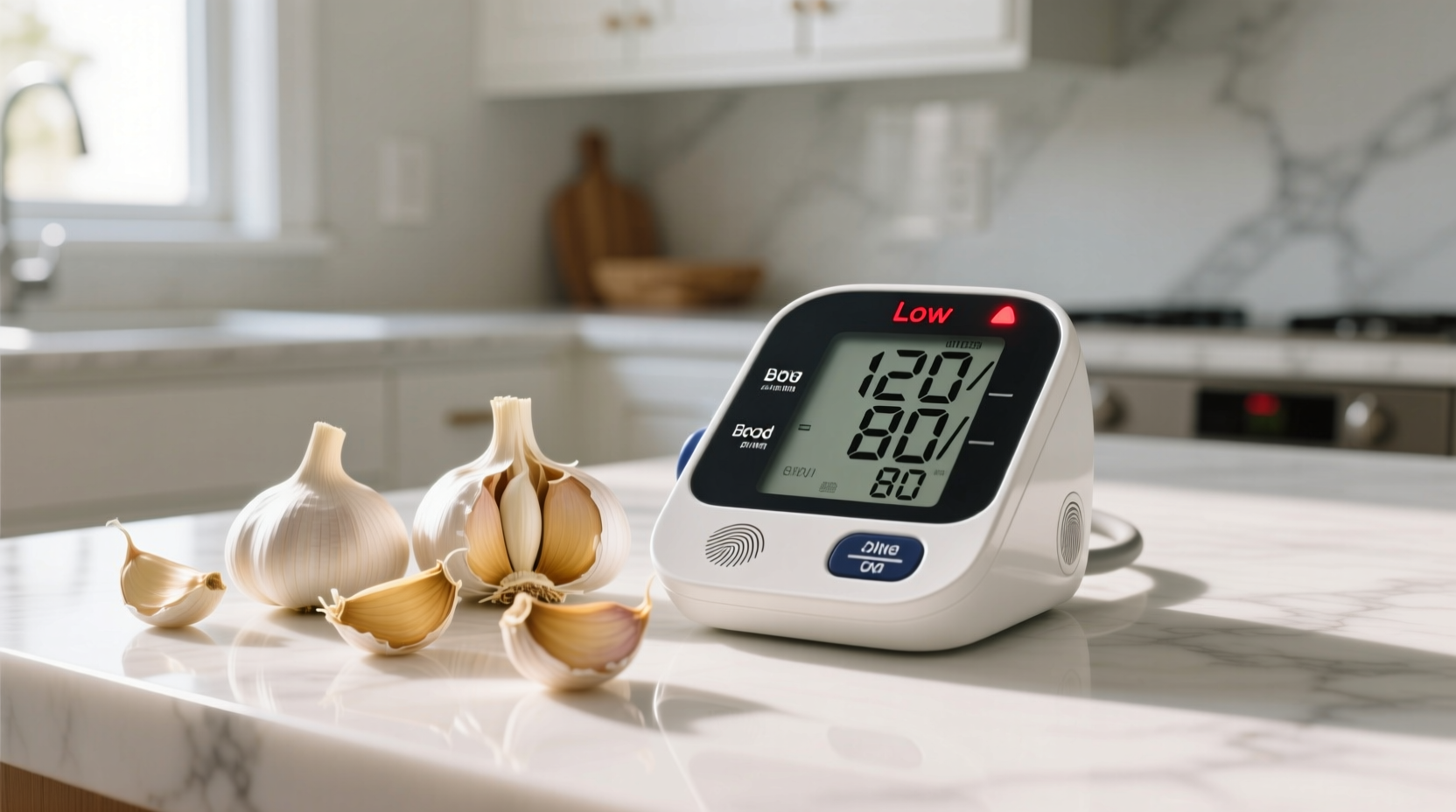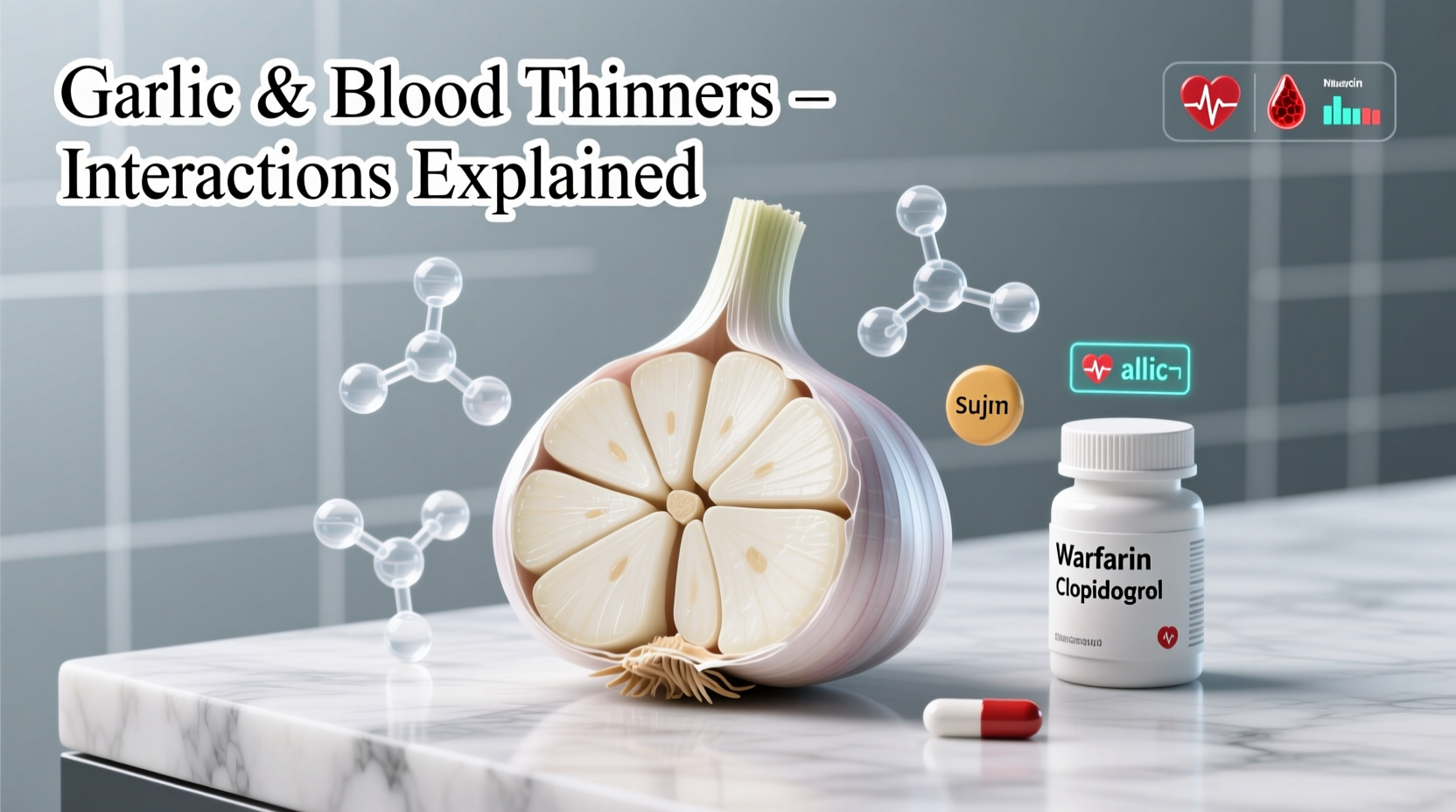If you take blood thinners like warfarin, apixaban, or rivaroxaban, consuming large amounts of garlic—especially in supplement form—can increase your bleeding risk. Research shows garlic may enhance the blood-thinning effects of these medications by inhibiting platelet aggregation. Always consult your healthcare provider before making dietary changes while on anticoagulant therapy.
Understanding how garlic interacts with blood thinners is crucial for anyone managing cardiovascular conditions. As a culinary historian with expertise in spice applications, I've researched how traditional ingredients like garlic intersect with modern medicine. This guide provides evidence-based information about garlic's effects on anticoagulant medications, helping you make informed decisions about your diet and medication regimen.
How Garlic Affects Blood Clotting
Garlic contains compounds like allicin and ajoene that influence blood coagulation. According to the National Center for Complementary and Integrative Health, these compounds can inhibit platelet aggregation—the process where blood cells clump together to form clots. This natural blood-thinning effect becomes significant when combined with prescription anticoagulants.
A 2020 review published in Nutrients analyzed multiple studies on garlic and coagulation. Researchers found that garlic supplements significantly increased bleeding time in participants compared to placebo groups. The effect was dose-dependent, meaning higher garlic intake correlated with greater impact on clotting mechanisms.

Common Blood Thinners and Their Mechanisms
Blood thinners work through different mechanisms, which affects how they interact with garlic:
- Vitamin K antagonists (warfarin) - Interfere with vitamin K-dependent clotting factors
- Direct oral anticoagulants (DOACs) - Target specific clotting factors (rivaroxaban, apixaban, edoxaban)
- Antiplatelet medications - Prevent platelets from clumping (aspirin, clopidogrel)
Garlic's interaction varies depending on which type of medication you take. The American Heart Association notes that garlic may have the strongest interaction with warfarin due to its dual effects on platelet function and potential vitamin K modulation.
Evidence-Based Interaction Analysis
Medical research provides clear evidence about garlic's interaction with anticoagulants. The table below summarizes key findings from authoritative sources:
| Blood Thinner Type | Garlic Interaction Level | Key Research Findings | Source |
|---|---|---|---|
| Warfarin | High | Garlic supplements increased INR levels by 15-20% in clinical studies | NIH Study, 2019 |
| DOACs (rivaroxaban, apixaban) | Moderate | Theoretical risk of increased bleeding; limited clinical evidence | Circulation, 2020 |
| Antiplatelet medications | Moderate-High | Garlic may enhance bleeding risk when combined with aspirin or clopidogrel | Mayo Clinic, 2023 |
Practical Guidance for Garlic Consumption
Based on current medical understanding, here's what you need to know about garlic consumption while taking blood thinners:
Culinary Garlic vs. Supplements
Using garlic in normal culinary amounts (1-2 cloves per day in cooking) generally poses minimal risk for most people on blood thinners. The FDA states that dietary garlic is typically safe, but concentrated forms present greater concerns.
Garlic supplements, however, deliver much higher concentrations of active compounds. A single garlic supplement pill may contain the equivalent of 10-20 cloves of fresh garlic. The National Institutes of Health warns that these concentrated forms significantly increase bleeding risk when combined with anticoagulant medications.
Monitoring Your INR Levels
If you regularly consume garlic while taking warfarin, your healthcare provider should monitor your INR (International Normalized Ratio) more frequently. Sudden changes in garlic consumption can cause INR fluctuations, potentially leading to dangerous bleeding or clotting events.
American College of Chest Physicians guidelines recommend maintaining consistent dietary habits while on warfarin therapy. If you decide to increase or decrease your garlic intake, inform your doctor so they can adjust your medication dosage accordingly.
When to Consult Your Healthcare Provider
Certain situations require immediate medical consultation regarding garlic and blood thinners:
- Before starting any garlic supplement regimen
- If you notice unusual bruising or bleeding
- Before dental procedures or surgery
- When making significant dietary changes
- If you experience symptoms like blood in urine or stool
Remember that individual responses vary based on genetics, other medications, and health conditions. Your healthcare provider can assess your specific risk factors and provide personalized guidance.
Safer Alternatives for Flavor Enhancement
If you need to limit garlic while on blood thinners, consider these flavorful alternatives:
- Onion powder (contains lower concentrations of blood-thinning compounds)
- Herbs like oregano, thyme, or rosemary (minimal interaction with medications)
- Lemon zest for bright flavor without blood-thinning effects
- Spices like cumin or coriander (generally safe in culinary amounts)
Always introduce new ingredients gradually and monitor for any changes in how you feel. Discuss any dietary modifications with your healthcare team to ensure they align with your treatment plan.











 浙公网安备
33010002000092号
浙公网安备
33010002000092号 浙B2-20120091-4
浙B2-20120091-4